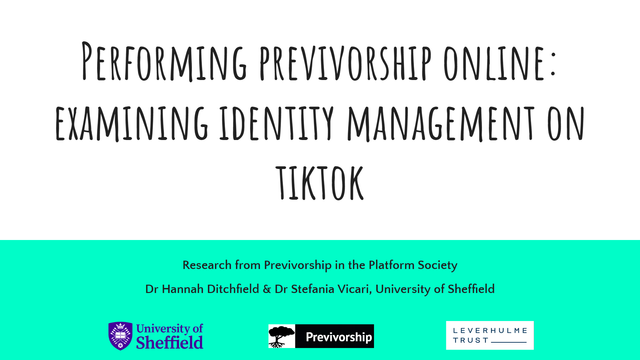I research and teach digital sociology at the University of Sheffield, UK where I co-lead the Patient experience and voice theme of Sheffield Cancer Research.
I am P.I. of the Leverhulme Trust-funded project Previvorship: http://bit.ly/3MpCAAs where I study social media, (#BRCA and #Lynchsyndrome) genes, and experiences of preliving cancer.
I am a #commodon interested in
#digitalmethods
#digitalhealth
#platforms
#socialmedia
#socialnetworks

